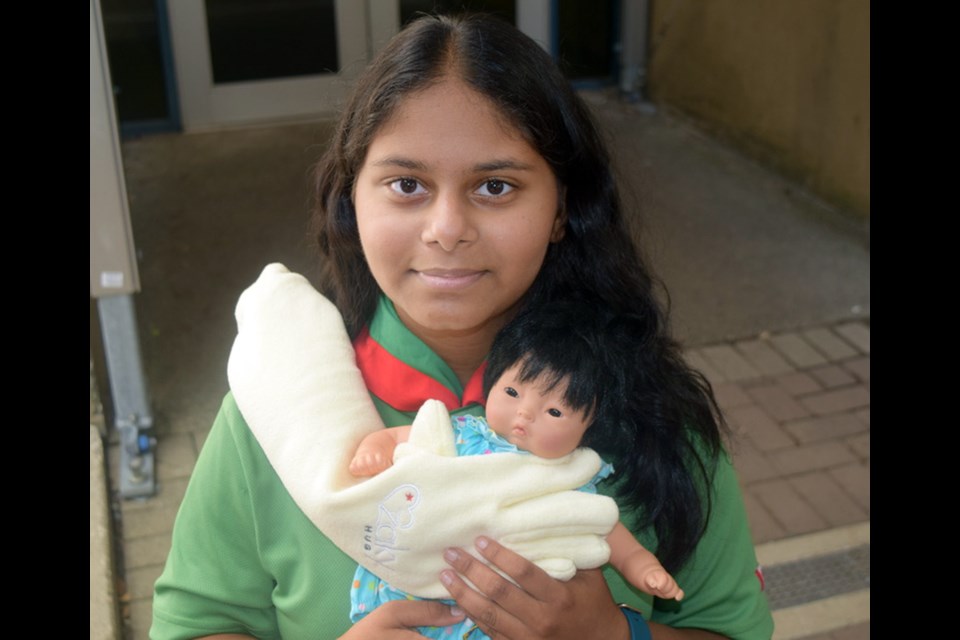Premature babies in the Neonatal Intensive Care Unit (NICU) at Royal Columbian Hospital in New Westminster have new soft companions thanks to some hard rocks and a Port Coquitlam teen who spent the first four months of her life there.
Insiyah Dharsee has been collecting smooth rocks and painting them with the comforting saying of B.C.’s health officer Dr. Bonnie Henry — “Be Calm. Be Kind. Be Safe” — since last summer as a way to cope with her own anxieties over the COVID-19 pandemic.
She gifted some of her colourful creations to people like the principal at her school and to Mayor Brad West.
But when Insiyah’s doctor presented her with a $20 bill for a rock during one of her regular follow-up visits to RCH, a light bulb went off.
A highlight of her check-up is usually a tour of the NICU, where her doctor can show her off as one of the unit’s success stories.
But with public health restrictions preventing that, Insiyah started to worry about the little babies and their own separation anxieties from their mothers.
Her mom, Rubina, told her about soft artificial hands called Zaky HUGS that can be used to comfort premature babies in their protected enclosures, cradling them with their weighted touch, warmth and even scent of their parents.
Insiyah did some research and reached out to their developer: A mom and engineer in Texas who came up with the surrogate hands as a comfort to her own premature son, Zachary, as he was transferred to another hospital after electricity in his NICU was knocked out by a hurricane.
Insiyah decided to channel her rock painting to raise money to purchase Zaky HUGS for each baby at RCH’s NICU.
On Aug. 20, Insiyah presented a cheque for $5,053.67 to Dr. Zenon Cieslak who had cared for her when she was born at just 26 weeks and weighing one pound, six ounces.
The money will buy 24 pairs of the Zaky HUGS, with enough left over for a special waterless bottle warmer to help nurses and parents heat up baby milk.
“Where there is a will, there is a way,” said Insiyah, who estimates she painted thousands of rocks and sold many of them from a small card table set up in front of her home. “If there is a chance in a million that you can do something, anything, do it.”
Insiyah said the project helped her turn the worries of home schooling and missing her friends into something positive.
“This pandemic will be remembered for many years to come,” she said. “Life slowed down and I was able to give back and make a difference.”



